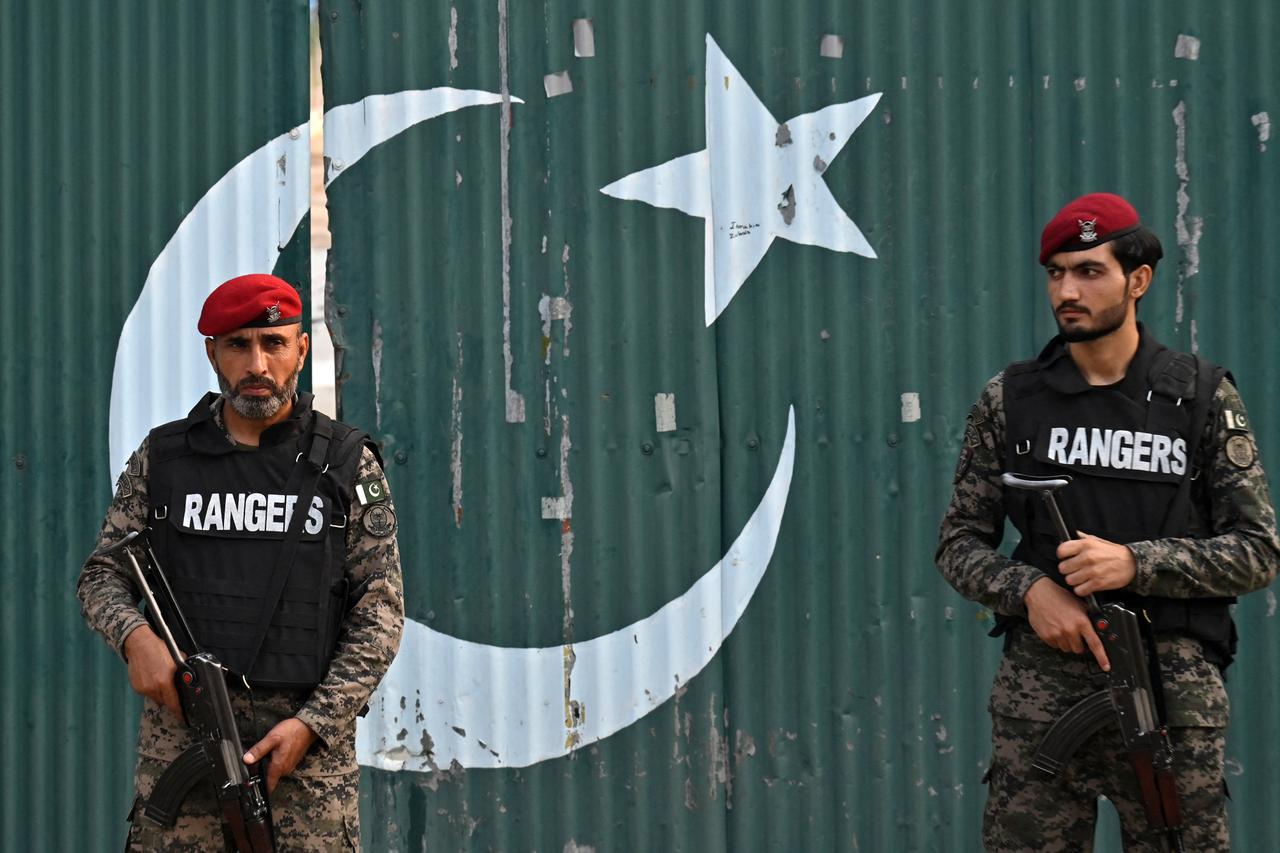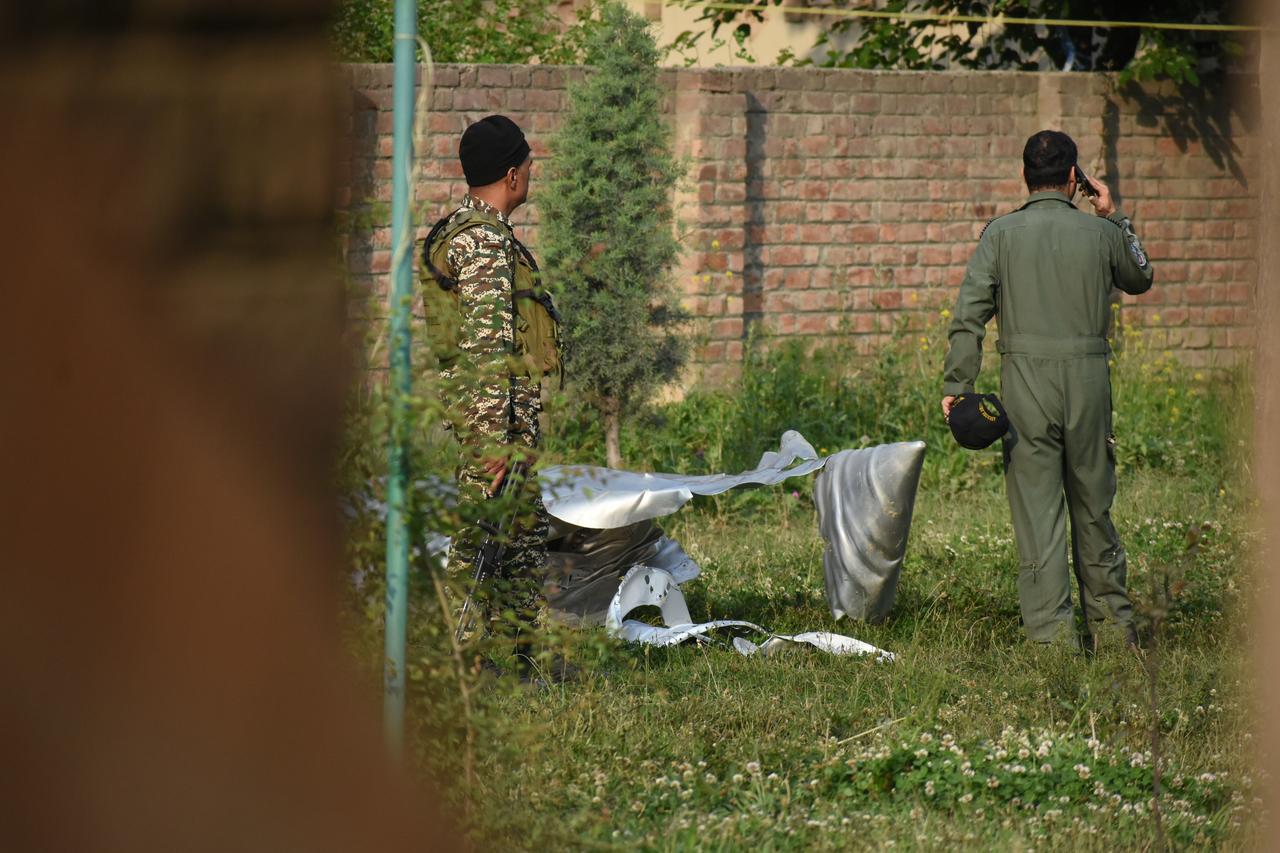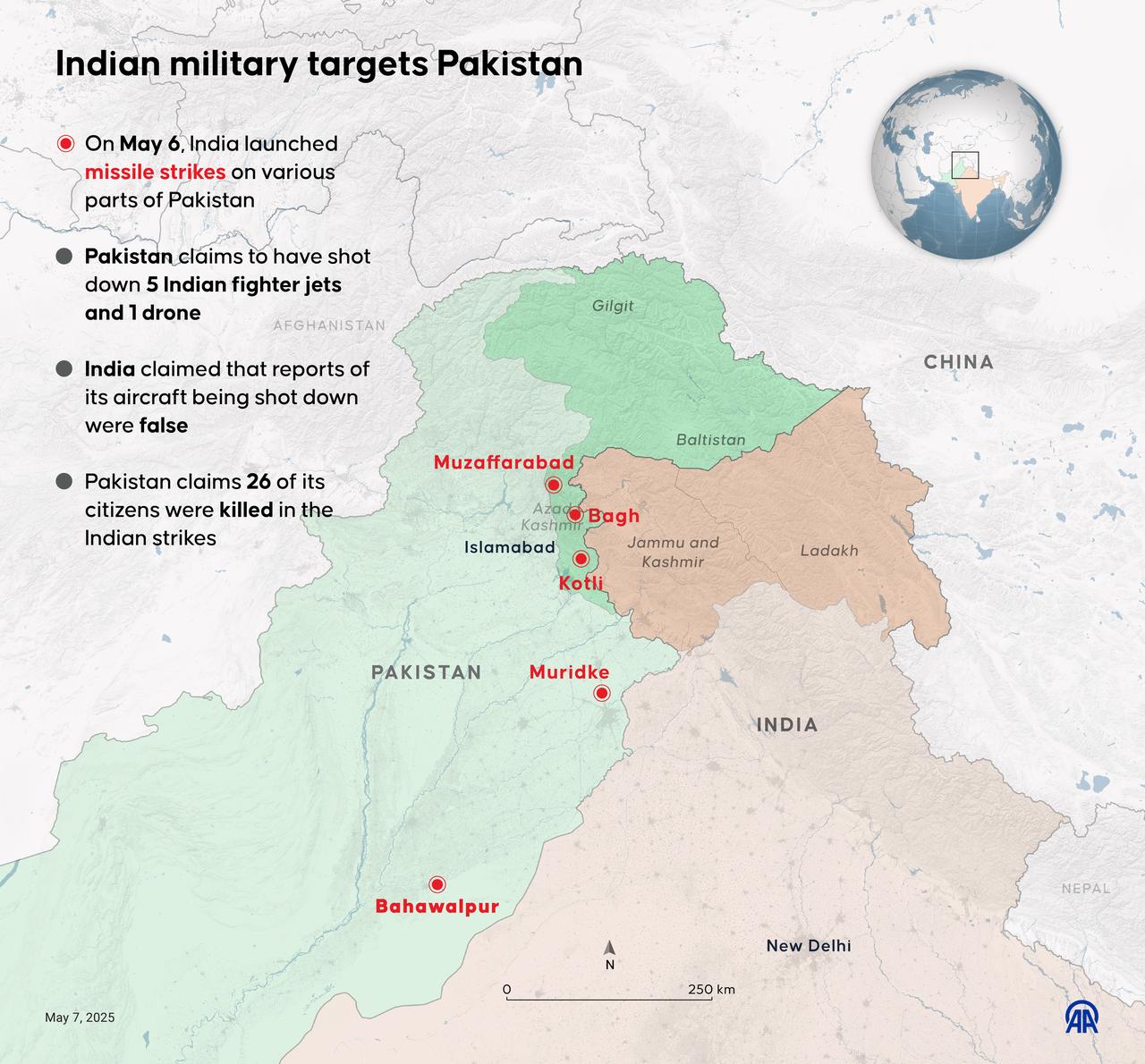
Following India’s missile strikes on Pakistan’s territory, the Pakistani government has granted its armed forces the authority to take appropriate retaliatory actions. This decision was announced after a meeting of Pakistan’s National Security Council (NSC), chaired by Prime Minister Shehbaz Sharif.
According to an official statement from the Prime Minister’s office, the NSC condemned India’s missile attacks, calling them “unprovoked, cowardly, and illegal.” The statement also expressed condolences for the lives lost in the attacks, and accused India of targeting civilian infrastructure, such as mosques, in its strikes.
The NSC labeled these attacks as a violation of international law and a breach of Pakistan's sovereignty and territorial integrity.
Pakistan’s NSC says that India has once again ignited an inferno in the region by conducting the strikes last night.
"Apprehensive of its falsehood being exposed, and without a shred of evidence about its claims, the Indian leadership, bereft of any morality, has now gone to the extent of attacking innocent civilians in order to satiate its delusional thoughts and short-sighted political objectives," the top security committee said.
"Attacking its innocent people is neither tolerable nor acceptable to Pakistan. India, against all sanity and rationality, has once again ignited an inferno in the region, the responsibility for ensuing consequences shall lie squarely with India," it added.
The NSC highlighted that Pakistan had previously offered a neutral investigation into the terrorist attack in Pahalgam, which occurred on April 22 and led to 26 deaths. India had claimed the attack was linked to terrorist camps in Pakistan, a claim that was firmly denied by Islamabad. Pakistan’s government also reiterated its call for an impartial investigation, which was rejected by India.
The statement from the NSC emphasized that, in line with the United Nations Charter, Pakistan reserves the right to respond at a time and place of its choosing to defend itself. The Pakistani government’s decision to grant its military the authority to respond comes after a series of escalating confrontations along the Line of Control (LoC), the de facto border between India and Pakistan.
The situation remains extremely tense, with both countries preparing for potential further military actions.

India launched missile strikes on Pakistan and the Pakistan-controlled Azad Kashmir region on Tuesday, following a terrorist attack in Pahalgam, India-administered Kashmir. The Indian military claimed to have targeted nine sites it described as “terrorist infrastructure,” while Pakistan reported that six civilian sites were hit, resulting in 26 deaths.
The Pakistani military also claimed to have downed five Indian aircraft during the exchange of fire, though New Delhi has not confirmed this. The strikes followed a pattern of cross-border tensions that have escalated since the April attack.

As tensions between the two nuclear-armed nations rise, several international actors have urged restraint. China, in particular, has expressed concern over the growing conflict and has called for both India and Pakistan to avoid actions that could further escalate the situation.
China's Ministry of Foreign Affairs called India’s missile strikes “unfortunate” and reiterated its commitment to playing a constructive role in de-escalating the tensions. Beijing urged both countries to prioritize peace and stability in the region.
The Swiss Foreign Ministry also expressed alarm over the rising tensions, calling for both countries to engage in dialogue to avoid further escalation. Germany has said that an "escalation must be prevented" amid the most serious military confrontation between India and Pakistan in two decades.
Qatar has said it is following with "deep concern" the continuing escalation between India and Pakistan and has called for resolving the crisis through diplomatic means. "The Ministry of Foreign Affairs emphasizes the urgent need to keep communication channels open between India and Pakistan to defuse tensions and address unresolved issues between them through constructive dialogue, ultimately leading to comprehensive, consensual, and sustainable solutions."